Bangalore Metro’s Efforts To Secure Ritual Clearance For Felling 300 Trees Fails: Legally Infirm Public Hearing Called By BBMP Tree Officer Cancelled
Its NOT only about trees. It’s about upholding the Honour of the Court, about making Democracy work
24 November 2015
Downloads:
Joint Representation to put Bangalore Metro on Legal Track

A battery of senior officials of the Bangalore Metro came to a Public Hearing called by Mr. Ranganathaswamy, Asst Conservator of Forests (Bangalore South) and Tree Officer of Bruhat Bengaluru Mahanagara Palike. The officials came armed with power points demonstrating that the Metro is a major progress from ancient forms of transport. They showed pictures of how humans have made a transition from bullock carts to cycles, overloaded jeeps, buses, trains and onto the slick comfort of the Metro. They were, thus, attempting to make a case that the extension of the Metro lines on Kanakapura Road and Mysore Road involving the felling of 300 old giant trees, was a price worth paying. They also claimed that they had worked hard to minimise the felling of trees, and come up with an alignment that would absolutely cause “least damage to the environment”.
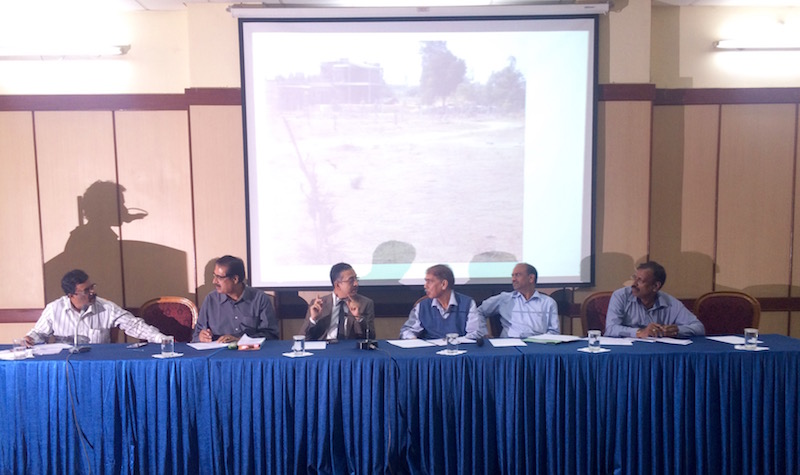
The Public Meeting was called by the Tree Officer in compliance with the direction of the Hon’ble High Court of Karnataka in WP No. 7288/2011, wherein public involvement in such decisions has been made mandatory. The Court had deemed “it necessary to direct that felling of trees would be undertaken as an exception rather than a rule, and further that the tree officer and tree authority would fully satisfy themselves and certify that all other alternatives have been considered regarding the feasibility of the felling of trees. If any objections are received from the public, due consideration shall be given by assigning reasons”. It may be recalled that when a similar meeting was called on 17th November only a couple of days notice was given via email to some individuals, resulting in the participation of only one person: Vinay Sreenivasa of Alternative Law Forum. On that day, Mr. Kumar Pushkar, IFS, Chief Conservator of Forests and Spl. Commissioner (Finance), BBMP along with the Tree Officer had decided to postpone the Hearing for a more capable and informed participation by the wide public, and had assured all information relating to the project’s expansion and its impacts would be priorly released. The meeting was called today without keeping this commitment.
Mr. Leo F. Saldanha, Coordinator of Environment Support Group questioned the legality of the meeting by bringing to light the fact that the High Court of Karnataka in its final order in WP 13241/2009 (Environment Support Group and ors. vs. Bangalore Metro and ors.) had held that the expansion of the Bangalore Metro project (beyond the 42kms Phase I), could only take place in strict compliance with the provisions of the Karnataka Town and Country Planning Act, 1961. He said the Court had noted that Bangalore Metro had comprehensively violated the law in the Phase I, and since it had already started construction and created fait accompli, any future expansion would not be allowed in violation of this fundamental planning law that demands careful and comprehensive planning of environmental, social and economic impacts. The Court had thus held that “a direction is issued to the State Government, as also, the Bangalore Development Authority to ensure that in future, in case they desire to change the land use, as has been depicted in the master plan, the competent authority shall follow the procedural mandate depicted in Section 14-A of the Karnataka Town and Country Planning Act, 1961 And likewise in case of making a town planning scheme, the State Government, as also the Bangalore Development Authority shall comply with the procedure contained in Sections 29, 30, 31, 32 and 34 of the Karnataka Town and Country Planning Act, 1961″. The Court also confirmed that the responsibility of conforming with the law and its direction would be binding on individual officers and made this explicitly clear stating: “(n)eedless to mention, that in case of violation of direction issued by this Court, based on statement made to this Court, the concerned officer/official shall be held responsible, for his having disobeyed the order passed by this Court, as also, the prescribed mandate of law”. (Emphasis supplied.)
One would hope that planning agencies of Karnataka Government, Bangalore Metro and the BBMP would strictly comply with the law considering this categorical direction. Instead, the meeting was called without any prior preparation of designs, feasibility reports and impact assessments for the expansion of the Bangalore Metro. The officials had literally come with nothing.

Various individuals, including from Hasiru Usiru network, who participated in the Hearing, demanded that it be postponed till such time Bangalore Metro was able to comply first with the direction of the Hon’ble High Court of Karnataka in WP 13241/2009 involving compliance with KTCP Act. Once these statutory clearances are secured, then, and only then, could any public consultation and decision making relating to felling of trees be initiated, they argued. In the meantime, Bangalore Metro could demonstrate how it has complied with the directions in WP 7288/2011 wherein it is specifically required that all afforestation activities undertaken for the damage done to trees under Phase I of the project is demonstrated. This ought to be done by providing accurate details, including exact location of saplings, their survival, and ability to independently verify the success of afforestation and also sharing publicly the accounts and reports of these efforts. At the Public Hearing today, Bangalore Metro officials could produce no such information.
A point of order was also raised that Mr. Pushkar could not officiate the Meeting as he is now a BBMP official, and thus an officer of an applicant agency. This would violate the direction issued by the Hon’ble High Court in WP 7288/2011, wherein it was highlighted that it would “…amount to a person being a judge in his own cause, which is anathema in law…”. Mr. Pushkar admitted to this infirmity in procedure and advised the Tree Officer Mr. Ranganathaswamy to call for a new Public Hearing on the matter only when Bangalore Metro had demonstrated compliance with the aforementioned directions of the High Court of Karnataka and had also prepared comprehensive environmental impact assessment reports. It was also confirmed that, henceforth, Public Hearings would be called within the Impact Zones and not 25 kms. away, as was the case with the cancelled Hearing today.

Representation for Endorsement
24th November 2015
To all those it may concern
Nil Statutory Public Consultation before Planning of Bangalore Metro:
During the preparatory phase of the Bangalore Metro plans (2003-2005), there was little or no discussion with the public at large about the project, its need, its impacts, etc. In fact, most statutory requirements to consult the public were flagrantly violated. This precipitated a situation where those directly impacted by loss of property and livelihoods were caught by surprise and had to take to the streets asserting their Right to be heard before a decision was taken. Their untiring efforts to convince the Government that building a Metro, if needed, can also be done humanely and with due consultation and transparency, fell largely on deaf ears. They suffered.
The possibility of finding far more effective and less expensive public transport modes, that could immediately remedy the public transport crisis in Bangalore, while also making the city functional, was also comprehensively ignored. There were then efforts to convince the Government that the Metro alignments could be so designed as to cause least impact on life and livelihoods, on public spaces, on parks and open spaces, on the city’s form and structure, its functionality, etc. There were debates organised by various public forums, to which Metro officials came. But rarely did anything they promised in public translate into action later. Not one Statutory Hearing was held as required per the Karnataka Town and Country Planning Act, 1961.
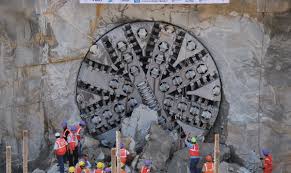
Major goof ups and losses in Phase I of the Bangalore Metro:
The building of Phase I of the Bangalore Metro has been characterised by various technical problems several of which were forewarned, but ignored. As a result there have been massive cost-overruns. The 42 kms section estimated to cost Rs. 5,000 crores in 2005, is now likely to cost over Rs. 14,000 crores, and is yet far from complete. Besides, the city has paid dearly, both in terms of economic losses, loss of form and structure, and also loss of trees. One only hopes that the Phase I of the Metro gets done fast so that the city can return to a modicum of functionality.
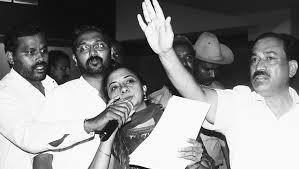
Ritual Consultations, but only about felling of Trees?
It appears Bangalore Metro does not want to learn from the many mistakes it committed while implementing Phase I. In what appears to be an attempt to ritually consult the public, the BBMP Tree Officer called for a meeting in Sadashivanagar on 17th November 2015 seeking public feedback on the proposed felling of 313 very old and giant trees (the vestigial remains of the living heritage of Bangalore, 190 trees on Kanakapura Road and 123 trees on Mysore Road) for constructing further phases of the Metro. Barely a day’s notice was given, so there was only the participation of the 1 individual from the “public”. Bowing to widespread public protests over such ritualistic organisation of Hearings, the meeting was postponed and it is now called again at the same venue at 3 pm on 24th November 2015 , Tuesday at IPP Conference Hall, Malleshwaram 16th Cross (Near Chowdaiah Memorial Hall) on Tuesday, 24th November 2015. The notice calling for this meeting issues an ominous threat that this will “the last meeting, and no more meeting will be convened in this regard under any circumstances. The matter will be discussed and decided in the meeting”. There is no statutory authority for any agency of the Government to issue such a threat to the public, not when no information has been priorly shared, and especially not when the meeting is held 20 kms. from the impact zones.
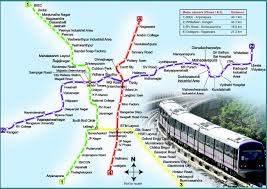
Flagrant violation of law and directions of the Karnataka High Court:
There are several problems with this meeting. While this is about felling of trees, the question arises if this decision can at all be taken when the Bangalore Metro and various other agencies are flagrantly violating the due process of public consultation relating to land use changes as mandated in the Karnataka Town and Country Planning Act, 1961. When this issue was raised before the Hon’ble Karnataka High Court in a PIL (W.P. No.13241/2009, Environment Support Group and ors. vs Bangalore Metro and ors.) prior to the inception of the Phase I of the Bangalore Metro, it took a while for the case to reach the final stage of Hearing. By then the Metro construction had begun overlooking almost all concerns that were raised. The Principal Bench of the Karnataka High Court decided the matter on 16th November 2010 when it found that it could do little about the Phase I of the project as construction had already begun. However, the Court held that the violations could not be sustained in the future expansion of the Metro, and held that:
“if a direction is issued to the State Government, as also, the Bangalore Development Authority to ensure that in future, in case they desire to change the land use, as has been depicted in the master plan, the competent authority shall follow the procedural mandate depicted in Section 14-A of the Karnataka Town and Country Planning Act, 1961 And likewise in case of making a town planning scheme, the State Government, as also the Bangalore Development Authority shall comply with the procedure contained in Sections 29, 30, 31, 32 and 34 of the Karnataka Town and Country Planning Act, 1961″.
“(n)eedless to mention, that in case of violation of direction issued by this Court, based on statement made to this Court, the concerned officer/official shall be held responsible, for his having disobeyed the order passed by this Court, as also, the prescribed mandate of law”. (emphasis supplied)
This decision was never challenged by Bangalore Metro, and is thus binding on them and all other agencies involved. Till date this direction of the High Court has also not been complied with. Thus Bangalore Metro Chief and various other officials of other implementing agencies, are guilty of Contempt of Court for actively engaging in investing public monies without precedent statutory clearances.
To put it another way, the decision of felling trees can only be taken if the Project sought prior land use changes as per the Karnataka Town and Country Planning Act. Bangalore Metro and Bangalore Development Authority have not as yet initiated steps seeking public consent for securing such clearances for Phase II of the project. Clearly, therefore, they are fundamentally violating the law and contemptuously disobeying categorical directions of the Karnataka High Court.
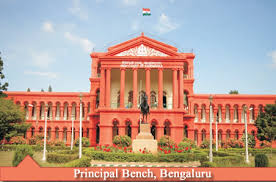
Its NOT only about trees. It’s about upholding the Honour of the Court; making Democracy work:
So it is not only about trees. Yes, trees do matter immensely in a city which has lost most of its tree cover in the past two decades. But the decision to fell them or not, can only be taken after the Phase II of the Metro is cleared in accordance with law as specifically directed by the Karnataka High Court. Since Bangalore Metro has not followed this statutory procedure, the entire exercise of holding the hearing about felling of trees is void ab initio, for it is violative of the law and absolutely contemptuous of the honour and dignity of the High Court of Karnataka. Unless, this callous disregard for procedures contained in law and continuing Contempt of Court is immediately corrected, individual officers will be held accountable for Contempt of Court.
The correct way forward for Bangalore Metro would be to first comply with procedures of the Karnataka Town and Country Planning Act, be transparent in their decision making by at least conducting the minimal public consultations on the overall project (not just the tree felling) as mandated in law, by putting out all its proposed plans in the public domain and first securing the necessary clearances for land use changes and budgetary approval, and only then can it move forward on the issue of felling trees, if at all found necessary.
(To review endorsements, please download Representation available at the top of this page)
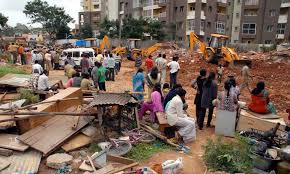
Relevant provisions of the Karnataka Town and Country Planning Act that remain violated by Bangalore Metro:
Section 14-A,29,30,31,32 and 34 of THE KARNATAKA TOWN AND COUNTRY PLANNING ACT, 19611 [14A. Change of land use from the outline development plan.—(1) At any time after the date on which the outline development plan for an area comes into operation, the Planning Authority May with the previous approval of the State Government, allow such changes in the land use or development from the outline development plan as may be necessitated by topographical cartographical or other errors and omissions, or due to failure to fully indicate the details in the plan or changes arising out of the implementation of the proposals in outline development plan or the circumstances prevailing at any particular time, by the enforcement of the plan: 1. Inserted by Act 17 of 1991 w.e.f. 19.04.1991. Provided that,— (a) all changes are in public interest; (b) the changes proposed do not contravene any of the provisions of this Act or any other law governing planning, development or use of land within the local planning area; and (c) the proposal for all such changes are published in one or more daily newspapers, having circulation in the area, inviting objections from the public within a period of not less than fifteen days from the date of publication as may be specified by the Planning Authority. (2) The provisions of sub-section (2) and (3) of section 14 shall apply mutatis mutandis to the change in land use or development from the outline development plan.]1 1 [(3) Notiwithstanding anything contrary contained in the Act, if the change in land use or development is from commercial or industrial to residential or from industrial to commercial and the stipulated fee is paid and the Local Planning Authority is informed prior to effecting the change, the permission for such change of land use or development shall be deemed to have been given.] 129. Declaration of intention to make a scheme.—(1) A Planning Authority having jurisdiction over any such land as is referred to in section 28 or over any such area as is referred to in section 26, may by resolution declare its intention to make a town planning scheme in respect of the whole or any part of such land or such area. (2) Within twenty-one days from the date of such declaration (hereinafter referred to as the declaration of intention to make a scheme), the Planning Authority shall publish it in the prescribed manner and shall despatch a copy thereof to the State Government through the Director. (3) The Planning Authority shall send a plan showing the area which it proposes to include in the town planning scheme to the State Government through the Director. (4) A copy of the plan shall be open to inspection by the public at the office of the Planning Authority. 30. Making and publication of draft scheme.—(1) Within twelve months from the date of declaration of intention to make a scheme under section 29, the Planning Authority shall make in consultation with the Director, a draft scheme for the area in respect of which the declaration has been made and publish the same in the prescribed manner: Provided that on application by the Planning Authority in that behalf, the State Government may from time to time, by notification extend the aforesaid period by such period as may be specified not exceeding six months. 90 Town and Country Planning [1963: KAR. ACT 11 (2) If the draft scheme is not made and published by the Planning Authority within the period specified or within the period so extended under sub-section (1), the State Government or an officer authorised by the State Government in this behalf may make and publish in the prescribed manner a draft scheme for the area in respect of which the declaration of intention to make a scheme has been made by the Planning Authority within a further period of nine months from the date of the expiry of the extended period. (3) If such publication is not made by the State Government within the further period specified in sub-section (2), the declaration of intention to make a scheme shall lapse, and until a period of three years has elapsed from the date of such declaration, it shall not be competent to the Planning Authority to declare its intention to make any town planning scheme for the same area or for any part of it. 31. Power of State Government to require Planning Authority to make a scheme.—(1) Notwithstanding anything contained in sections 29 and 30, the State Government May in respect of any Planning Authority after making such inquiry as it deems necessary by notification, require the Planning Authority to make and publish in the prescribed manner and submit for its sanction through Director a draft scheme in respect of any land in regard to which a town planning scheme may be made under section 28. (2) For the purpose of this Act and the rules made thereunder, the requisition under sub-section (1) by the State Government shall be deemed to be the declaration of intention to make a scheme under section 2932. Contents of draft scheme.—The draft scheme shall contain the following particulars, namely:— (a) the area, ownership and tenure of each original plot, the land allotted or reserved under clause (e) of sub-section (2) of section 26 with a general indication of the uses to which such land is to be put and the terms and conditions subject to which such land is to be put to such uses; (b) the extent to which it is proposed to alter the boundaries of original plots;(c) an estimate of the net cost of the scheme to be borne by the Planning Authority; (d) a full description of all the details of the scheme under such clauses of sub-section (2) of section 26 as may be applicable; 1963: KAR. ACT 11] Town and Country Planning 91 (e) the laying out or re-laying out of land either vacant or already built upon; (f) the filling up or reclamation of low-lying swamp or unhealthy areas, or levelling up of land; and (g) any other prescribed particulars. 34. Consideration of objections and sanction of draft scheme.—(1) If, within one month from the date of publication of the draft scheme under sub-section (1) or sub-section (2) of section 30, as the case may be, any person affected by such scheme communicates in writing to the Planning Authority any objection relating to such scheme, the Planning Authority shall consider such objection and May at any time before submitting the draft scheme to the State Government, as hereinafter provided, modify such scheme in such manner as it thinks fit. (2) The Planning Authority shall, within four months from the date of its publication under sub-section (1) or sub-section (2) of section 30, submit the draft scheme with any modifications which it may have made therein together with the objections which may have been communicated to it, to 92 Town and Country Planning [1963: KAR. ACT 11 the State Government through the Director and shall at the same time apply for its sanction. (3) After receiving such application and after making such inquiry as it may think fit, the State Government, in consultation with the Director, may by notification, within six months from the date of its submission, either sanction such scheme with or without modifications and subject to such conditions as it may think fit to impose, or refuse to give sanction. (4) If the State Government sanctions such scheme, it shall in such notification state at what place and time the draft scheme so sanctioned shall be open to the inspection of the public.
BRUHAT BANGALORE MAHANAGARA PALIKE
No: ACF/SD.2/PR.72/2015-16 Office of the
Asst. Conservator of Forests
1st Floor, 2nd Block, Jayanagar
Bangalore, dated: 19-11-2015
Meeting Notice
Sub:- Removal of trees which are obstructing the
BMRCL Reach-2 & Reach-4 projects.
Ref:- This office public notification No. ACF/SD.2/
PR.30/2015-16, dated: 22.6.2015.
*******
With reference to this office public notification cited under reference, meeting was convened on 17.11.2015 at IPP Conference Hall, Malleshwaram 16th Cross, Bangalore regarding BMRCL’s extending Reach-2 (i.e., from Nayandanahalli – Kengeri) and Reach-4 (i.e., from Kanakapura Metro cash & carry to Talaghattapura). However owning to some reason as many persons, who sent their objections, could not attend the meeting on that day, the said meeting is postponed to 24.11.2015 at 3.00 p.m. The venue of the meeting remains same. The meeting fixed on 24.11.2015 will be the last meeting, and no more meetings will be convened in this regard under any circumstances. The matter will be discussed and decided in the meeting.
Interested public may please attend the meeting.
Land Mark: Near Chowdaiah Memorial Hall & TTD Temple, Malleswaram, (Vyalikaval), Bangalore.
Contact Nos.,: 9480885641, 9164995111, 9480683842, 9480684849, 9480684850
Sd/-
Asst. Conservator of Forests
Jayanagar 2nd Block, BBMP office,
Bangalore
campaigns,metro,bangalore,bengaluru,Displacement,metro,namma metro,Public Hearing,tree felling

